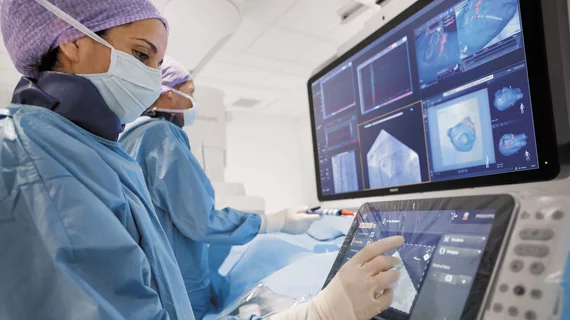How effective is simulation training for interventional radiology procedures?
New survey data detail how simulation curriculum and training improve procedural competence among radiology residents, prompting some to suggest that it be routinely incorporated into IR residency.
Residents of Weill Cornell Medicine who participated in a two-year interventional simulation curriculum recently reported feeling increased confidence in their ability to conduct various procedures upon completion of different training modules.
Simulation training has numerous benefits for residents, but it is not yet a standard routinely included in radiology residency curriculum. Thanks, in part, to clinical rotation adjustments forced upon residency programs during COVID, simulation appears to be gaining ground, the authors of a new Academic Radiology paper suggest.
“At our institution, we were able to implement a simulation curriculum during COVID-19 to ensure residents continued to keep pace with their training,” corresponding author Tyler K. Khilnani, BS, with the Division of Interventional Radiology at New York Presbyterian Hospital/Weill Cornell Medicine, and co-authors noted. “This became paramount, as many procedures performed in our hospital could be considered nonemergent and case load fell dramatically.”
The two-year curriculum completed by the residents included eight different modules using a high-fidelity endovascular simulator. The modules included IVC filter placement, transarterial chemoembolization, trauma embolization, uterine artery embolization, prostate artery embolization and peripheral arterial disease interventions. Trainees were filmed while completing a module and IR faculty would later use the recordings to review the assigned module.
From the residents’ standpoint, the training modules significantly increased procedural confidence in the majority (87.5%) of participants. Each surveyed resident reported feeling like the simulation training was a helpful addition to their education and 75% suggested that simulation training should be incorporated into IR residency programs.
All participants indicated that the skills they learned were transferrable to real interventional suites.
While these results positively reinforce the effectiveness of simulation training, the authors noted that more research into how to best implement such curriculum is needed.
The study abstract is available here.

